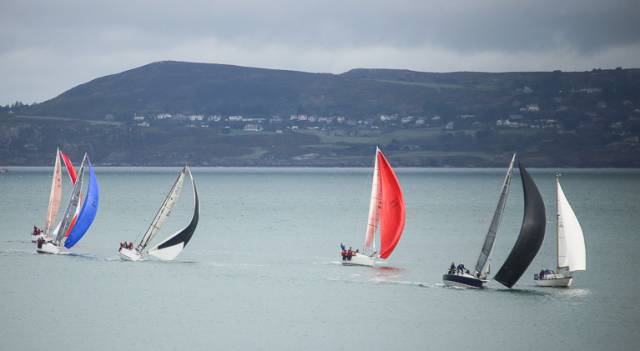The Beneteau 34.7 Black Velvet is the leader after two races sailed of the DBSC Spring Chicken race on Dublin Bay. The Leslie Parnell skippered yacht from the Royal Irish Yacht Club leads J109 Dear Prudence in the Rathfarnham Ford Sponsored series that has attracted a mix of up to 40 keelboats from fifty–footers to Flying Fifteens.
We reported on Sunday, that the ICRA Boat of the Year Joker II lead a group of J109s into last Sunday morning's race, the first in weeks due to bad weather. A reader, A. Rowan, has been in touch to say that, in fact, another J109, Dear Prudence (black spinnaker), was in front of Joker II by the third mark as our picture above now illustrates.
Download overall results below. Racing continues this Sunday from the National Yacht Club.































































